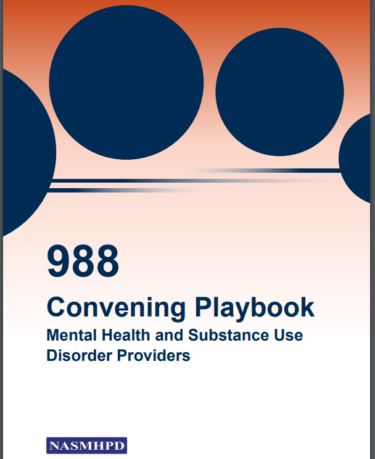2022 CCBHC Impact Report
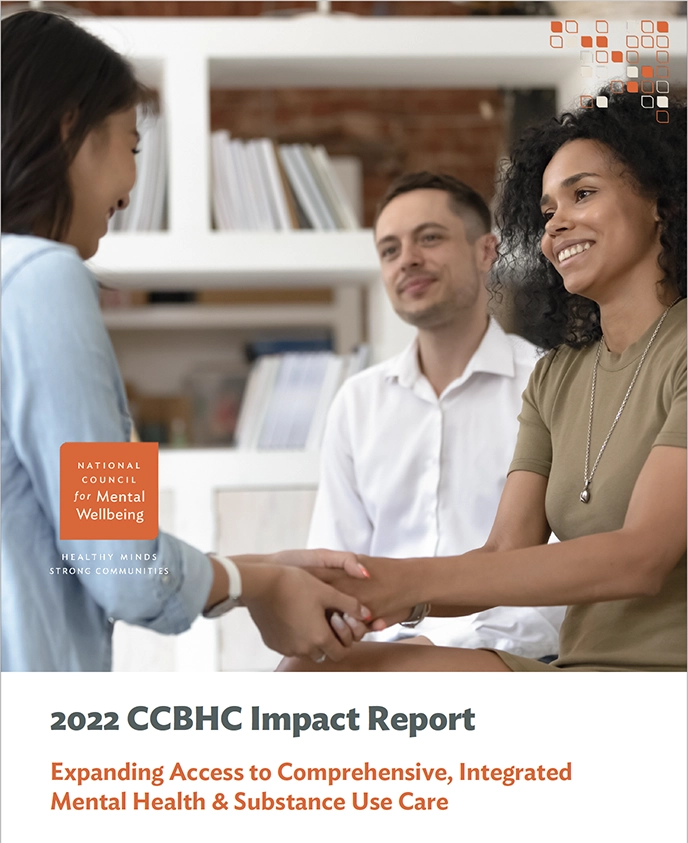
New data shows Certified Community Behavioral Health Clinics are having tremendous success in tackling the dual mental health and substance use crises in America.
What is a CCBHC?
CCBHCs are clinics that receive flexible funding to expand the scope of mental health and substance use services in their community and serve anyone who walks through the door, regardless of their diagnosis or insurance status. They are funded either through a demonstration program or through SAMHSA grants that help clinics in dozens more states take on the activities and services of a CCBHC.
What does the data show?
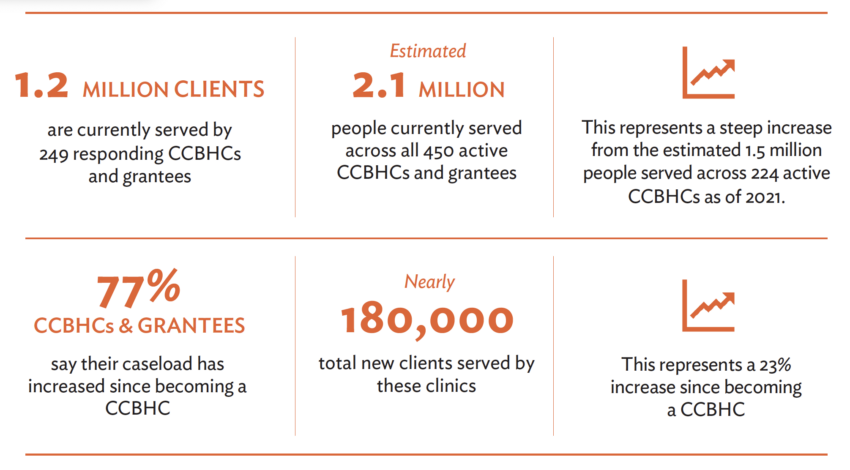
- CCBHCs are serving an estimated 2.1 million people nationwide.
- CCBHC status enables clinics on average to serve more than 900 more people per clinic than prior to CCBHC implementation, or a 23% increase.
- CCBHCs provide access to mental health & substance use care much faster than the national average wait time of 49 days, with the vast majority offering access within a week or less. They also provide access to certain forms of substance use disorder treatment at vastly higher rates than non-CCBHCs, with 82% of CCBHCs offering more or more forms of medication assisted treatment, compared to only 56% of substance use clinics nationwide.
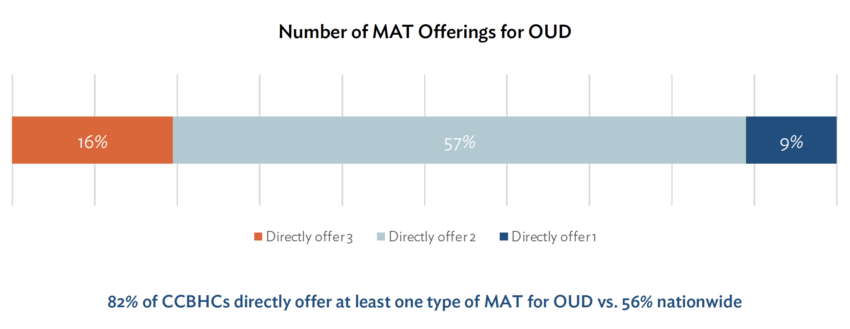
- As a result of becoming a CCBHC, clinics on average created an estimated 11,000 new behavioral health jobs — critical to the ongoing workforce shortage and rising demand for services.
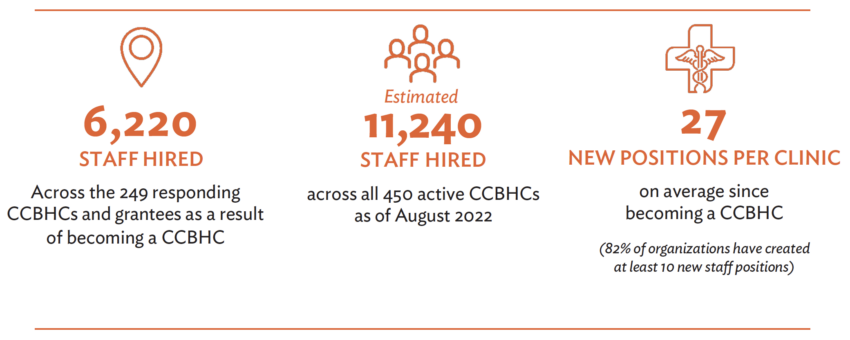
- CCBHCs are helping divert people in crisis from hospitals, emergency departments, and jails. Either directly or through referral, 98% of CCBHCs have 24/7 crisis lines, 97% have mobile crisis response capability, and 94% offer crisis stabilization services.
Where can I learn more about CCBHCs?
- Check out the National Council’s CCBHC Success Center
- Learn more about CCBHCs, Crisis Care, and 988 Implementation
- Dive into how CCBHCs intersect with the justice systems
- Learn about how CCBHCs factor into the Sequential Intercept Model (SIM) to help justice-involved individuals
- Read what comes next for CCBHC expansion through the Bipartisan Safer Communities Act
- Access the National Council’s CCBHC-E National Training and Technical Assistance Center, funded by SAMHSA, a one stop shop for training and technical assistance related to certification, sustainability, and implementation of processes that support access to care and evidence-based practices.
The bottom line:
CCBHCs are changing the mental health and substance use care landscape, proving that when evidence-based clinical care is supported with effective financing, clinics can dramatically increase access to care and provide more comprehensive and lifesaving services to anyone in need of care.
Don’t hesitate to reach out if you have questions about the data or want to learn more!

